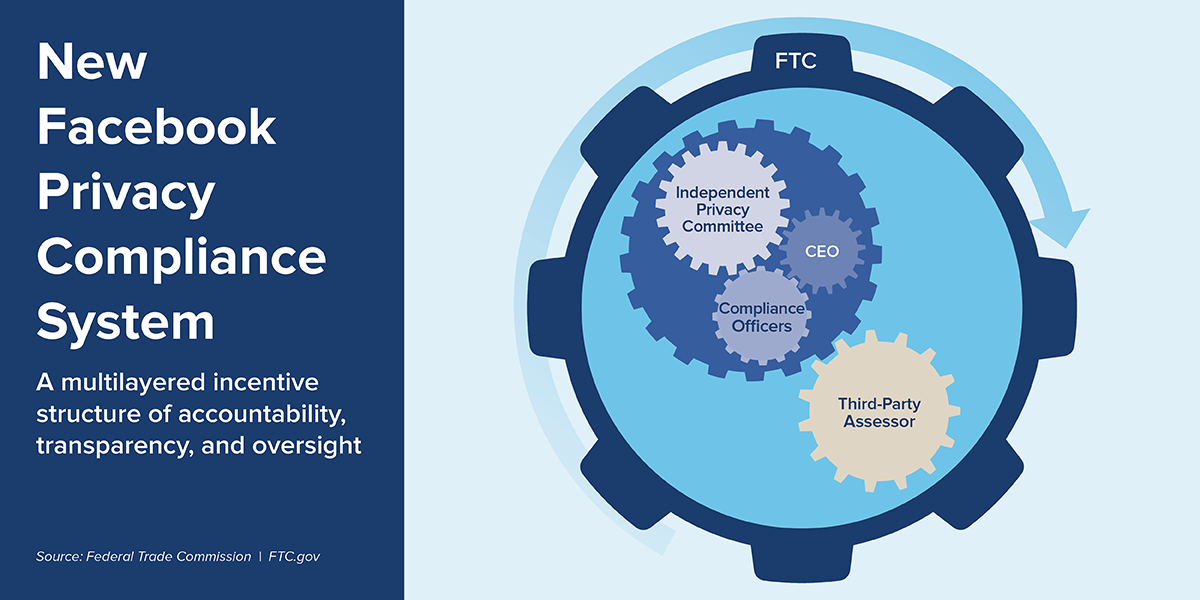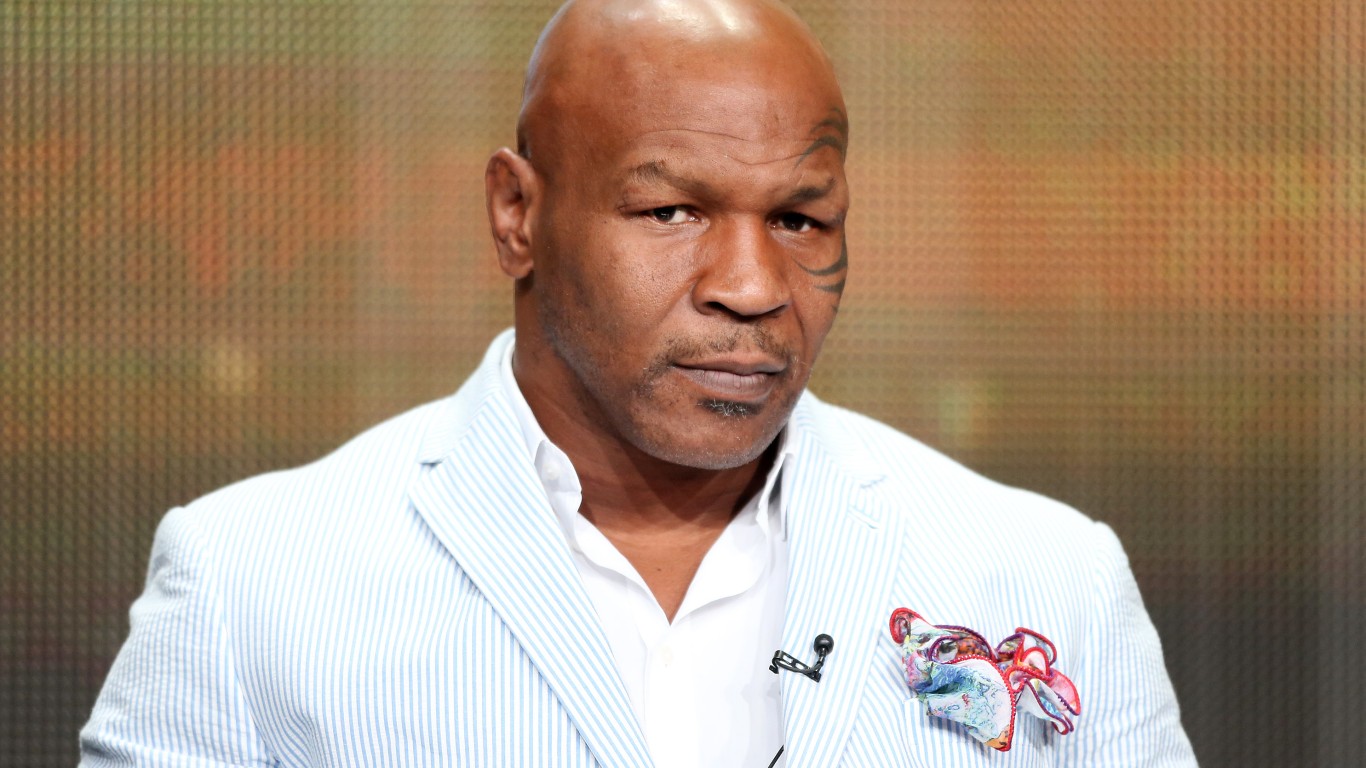
The U.S. Federal Trade Commission (FTC) on Wednesday announced that it has settled charges against social media giant Facebook Inc. (NASDAQ: FB) related to the user privacy rights violations. The company will pay an “unprecedented” $5 billion fine and “submit to new restrictions and a modified corporate structure that will hold the company accountable for the decisions it makes about its users’ privacy.”
While the monetary value of the fine is one of the largest ever imposed by the federal government for any violation, the stipulated court-ordered overhaul of Facebook’s corporate practices may be the more important part of the settlement agreement. After all, Facebook is scheduled to report second-quarter revenues of $16.5 billion after markets close Wednesday, so $5 billion, while not exactly peanuts, is not a game-changing amount. The company’s total cash and short-term investments at the end of the first quarter was more than $45 billion.
What does change is the level of accountability the FTC is imposing on the company’s board of directors and its management, particularly founder and CEO Mark Zuckerberg. The FTC said of the order:
It establishes an independent privacy committee of Facebook’s board of directors, removing unfettered control by Facebook’s CEO Mark Zuckerberg over decisions affecting user privacy. Members of the privacy committee must be independent and will be appointed by an independent nominating committee. Members can only be fired by a supermajority of the Facebook board of directors.
The order also established a biennial review of Facebook’s privacy program by an FTC-appointed assessor, and the assessments must be based on the assessors independent fact-gathering and “must not rely primarily on assertions or attestations by Facebook management.”
Zuckerberg’s “unfettered control” is further blunted by the FTC’s requirement that he and “designated compliance officers must independently submit to the FTC quarter certifications that the company is in compliance with the privacy program mandated by the order, as well as an annual certification that the company is in overall compliance with the order. Any false certification will subject them to individual civil and criminal penalties.”
The settlement also requires Facebook, among other things, to exercise greater oversight of third-party apps; forbids using phone numbers gathered from users for two-factor authentication for any advertising purpose; requires conspicuous and clear notice of the company’s use of facial recognition technology.
The settlement announced Wednesday is the result of violations by the company of a previous agreement with the FTC. And in a separate announcement, the FTC on Wednesday announced an agreement with Cambridge Analytica’s former CEO and an app developer who worked for the company restricting future business practices and requiring them to “delete or destroy any personal information they collected [from Facebook].” Cambridge Analytica has filed for bankruptcy and has not settled the FTC’s allegations.
Facebook’s share price fell by about 1.1% to $200.12 Wednesday morning, in a 52-week range of $123.02 to $218.62. The stock’s 12-month price target is $223.19.
Credit Card Companies Are Doing Something Nuts
Credit card companies are at war. The biggest issuers are handing out free rewards and benefits to win the best customers.
It’s possible to find cards paying unlimited 1.5%, 2%, and even more today. That’s free money for qualified borrowers, and the type of thing that would be crazy to pass up. Those rewards can add up to thousands of dollars every year in free money, and include other benefits as well.
We’ve assembled some of the best credit cards for users today. Don’t miss these offers because they won’t be this good forever.
Flywheel Publishing has partnered with CardRatings for our coverage of credit card products. Flywheel Publishing and CardRatings may receive a commission from card issuers.
Thank you for reading! Have some feedback for us?
Contact the 24/7 Wall St. editorial team.

 24/7 Wall St.
24/7 Wall St.

